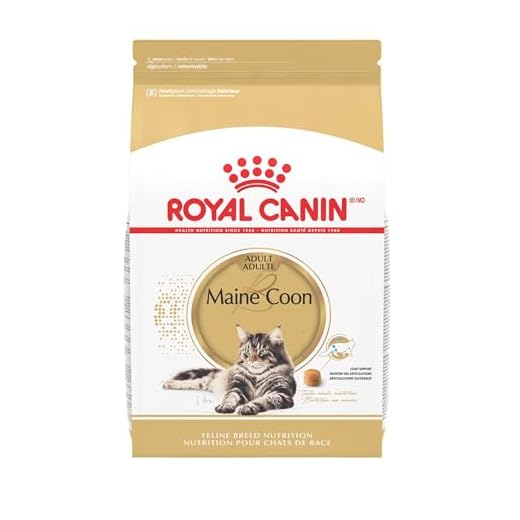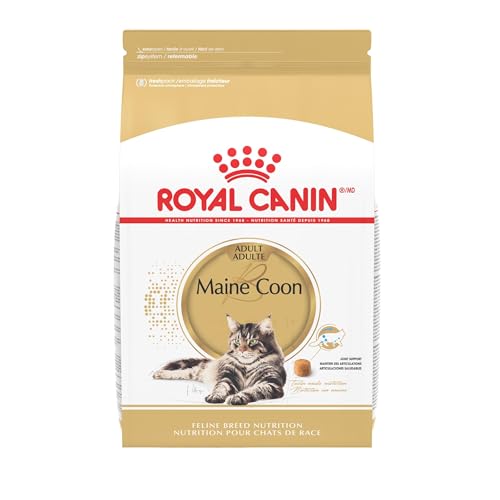



On average, these gentle giants can thrive for 12 to 15 years, but with proper care, some may even reach 20. Providing a balanced diet, regular veterinary check-ups, and a loving environment plays a significant role in their longevity.
Genetic factors also contribute to their lifespan. Common health concerns include hypertrophic cardiomyopathy and hip dysplasia, which can affect their overall well-being. Regular screenings and a proactive approach to health can mitigate risks associated with these conditions.
Engaging in physical activities and mental stimulation is crucial. Keeping them active helps in maintaining a healthy weight and prevents obesity-related issues, which can shorten their time with us. Ensure they have access to interactive toys and opportunities for play to keep their minds sharp.
Socialization is key too. These affectionate beings thrive on companionship, whether it’s with humans or other pets. A happy and secure environment fosters a longer, more fulfilling life.
Expected Lifespan of Large Feline Companions
These majestic furry friends typically enjoy a lifespan ranging from 12 to 15 years, with many individuals reaching their late teens. Some exceptional cases even report ages surpassing 20 years, showcasing their robust nature and the impact of quality care.
Factors Influencing Longevity
- Diet: A balanced and nutritious diet is crucial. High-quality food contributes to overall health and longevity.
- Healthcare: Regular veterinary check-ups, vaccinations, and preventive treatments are essential in avoiding diseases.
- Activity Level: Encouraging physical activity promotes a healthy weight and reduces the risk of obesity-related issues.
- Environment: A safe and stimulating living space can enhance well-being, reducing stress and enhancing happiness.
Common Health Concerns
While generally healthy, larger breeds may face specific health challenges. Regular monitoring for the following conditions can improve quality of life:
- Hypertrophic cardiomyopathy (HCM) – a heart condition common in this breed.
- Hip dysplasia – a skeletal issue affecting mobility.
- Spinal muscular atrophy – which can influence motor functions.
Ensuring a proactive approach to health can significantly influence the lifespan of your feline companion. By addressing these factors, you can help them thrive for many years to come.
Average Lifespan of Maine Coon Cats
The typical lifespan for these felines ranges from 12 to 15 years, although some can exceed this range with proper care. Regular veterinary check-ups, a balanced diet, and plenty of exercise contribute significantly to their longevity.
Genetics plays a crucial role; certain hereditary health issues can affect their years. Hypertrophic cardiomyopathy (HCM) is a common concern, so screening for this condition is advisable.
Maintaining a stress-free environment also promotes a longer life. Providing engaging toys and climbing structures can keep them active and mentally stimulated. A safe outdoor space or leash walks can enhance their quality of life, but always prioritize safety.
Preventive healthcare, including vaccinations and dental care, is vital for enhancing health and lifespan. Regular grooming helps identify any skin issues early, adding another layer of care.
In summary, with attentive care and awareness of health risks, these majestic companions can enjoy a fulfilling and extended life. Staying informed and proactive is key to ensuring they thrive.
Factors Affecting Lifespan of These Felines
Genetics play a significant role in determining how many years a furry companion may enjoy. Breeding practices influence health traits, so acquiring a pet from a reputable source can enhance longevity. Ensure the lineage is free from hereditary conditions common in larger breeds.
Diet and Nutrition
Feeding a balanced diet rich in protein is crucial. High-quality kibble or wet food tailored for larger breeds supports overall health. Regular portion control prevents obesity, which can lead to various health issues, reducing lifespan. Fresh water should always be accessible.
Regular Veterinary Care
Routine check-ups are vital. Vaccinations, dental care, and preventative treatments for parasites protect against diseases. Regular health screenings can catch potential problems early, significantly affecting longevity. Keep an eye on any changes in behavior or physical condition, as early intervention can be lifesaving.
Health Issues Common in Maine Coons
Regular veterinary check-ups are crucial for spotting common health concerns in these gentle giants. Hypertrophic cardiomyopathy (HCM) is prevalent, affecting the heart muscle and leading to serious complications. Genetic screening can help identify carriers, allowing for informed breeding decisions.
Another issue is spinal muscular atrophy (SMA), a genetic condition that affects motor neurons, potentially leading to mobility challenges. Monitoring for symptoms can aid early intervention and management.
Obesity is also a risk factor due to their large size and tendency to overeat. Maintaining a balanced diet is essential; consider options like the best cat food for fat cats to ensure proper nutrition while managing weight.
Dental disease can occur as well, so regular dental care is recommended to prevent periodontal disease. Brushing their teeth or providing dental treats can be beneficial.
Lastly, keep an eye out for urinary tract issues, as Maine Coons may be prone to these. Ensuring access to fresh water and a balanced diet can help prevent such conditions. Addressing these health concerns proactively can contribute to a happier, healthier life for these magnificent felines.
For pet owners interested in maintaining their lawns, knowing about equipment is also helpful. Check out this link for insights on whether are Einhell lawn mowers any good to keep your outdoor space tidy while your furry friends enjoy the fresh air.
Importance of Regular Veterinary Check-ups
Scheduling annual veterinary visits is crucial for maintaining optimal health. Regular examinations help detect issues before they escalate, ensuring a longer and healthier existence for our furry friends.
During these check-ups, veterinarians can perform necessary vaccinations, dental cleanings, and parasite control, which are essential for preventing common ailments. Blood tests can reveal underlying conditions that may not yet show symptoms.
| Check-up Frequency | Age of Your Feline | Common Tests |
|---|---|---|
| Annual | 1-7 years | Vaccinations, physical exam |
| Semi-annual | 8 years and older | Blood work, dental check |
| As needed | Any age with symptoms | Diagnostic imaging, specialized tests |
Regular assessments help keep track of weight and dietary needs, adjusting food as necessary to prevent obesity-related issues. Monitoring behavior and activity levels during visits allows for early intervention if changes are observed.
Prompt attention to health concerns can significantly enhance the quality of life. Build a relationship with a trusted veterinarian who understands your companion’s unique needs. Together, you can navigate any health challenges that arise, ensuring a happier, healthier existence for your beloved pet.
Diet and Its Impact on Longevity
To ensure a longer, healthier existence, a well-balanced diet tailored to individual needs is key. High-quality protein sources such as chicken, turkey, and fish should form the basis of meals. These proteins support muscle health and overall vitality.
Key Nutritional Components
- Proteins: Essential for growth and repair.
- Fats: Necessary for energy and skin health; omega-3 and omega-6 fatty acids are beneficial.
- Vitamins: A range of vitamins, especially A, D, E, and B-complex, contributes to immune function and overall well-being.
- Minerals: Calcium and phosphorus support bone health, while taurine is crucial for heart function.
Portion control is also important. Overfeeding can lead to obesity, which is a significant risk factor for several health issues, including diabetes and joint problems. Regular monitoring of body condition helps maintain an ideal weight.
Hydration Matters
Access to fresh water is essential. Dehydration can lead to kidney issues, which is particularly concerning for older individuals. Including wet food in the diet can help increase moisture intake.
Consider consulting with a veterinarian to create a personalized dietary plan that addresses specific health needs, age, and activity levels. A tailored approach can significantly enhance quality of life and longevity.
Tips for Extending Your Maine Coon’s Life
Regular exercise is crucial. Encourage playtime with interactive toys or create a safe outdoor space for exploration. Daily activity helps maintain a healthy weight and stimulates mental engagement.
Quality nutrition matters. Provide a balanced diet rich in protein and essential nutrients. Consult with a vet to choose the right food tailored to their age and health status.
Hydration is key. Always ensure fresh water is available. Consider a pet water fountain; many felines prefer running water, which can encourage drinking.
Dental health impacts overall wellness. Implement a dental care routine, including brushing and dental treats. Regular teeth check-ups can prevent serious issues.
Social interaction is beneficial. Spend time bonding through cuddles and gentle grooming. This fosters emotional well-being and reduces stress.
Environmental safety enhances longevity. Remove hazardous plants and chemicals from your home. Create a safe, stimulating environment that encourages exploration without risks.
Regular monitoring of health is vital. Keep an eye on any changes in behavior, appetite, or weight. Early detection of issues leads to better outcomes.
Consider pet insurance. This can ease financial burdens related to unexpected health concerns, allowing for prompt veterinary care when necessary.








